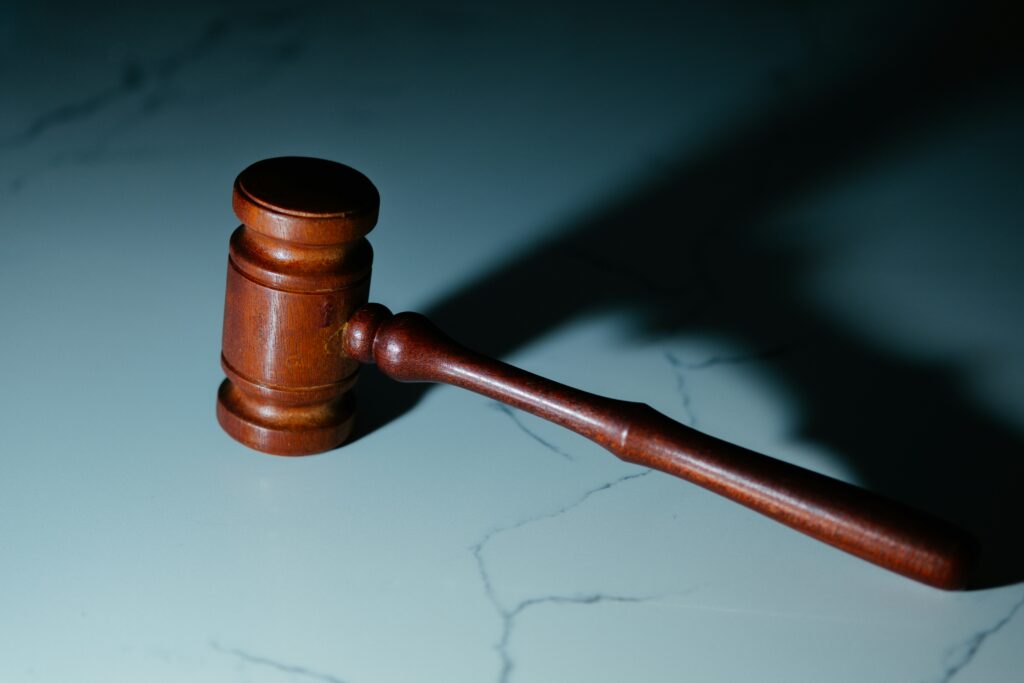Litigation in Thailand. Thailand has a civil law legal system influenced by continental European (especially German and French) legal traditions. Litigation is adversarial but also highly formal, with strict rules of evidence, procedure, and court hierarchy. The judiciary is independent and governed primarily by the Courts of Justice, under the supervision of the Judicial Commission.
Legal proceedings in Thailand can be civil, criminal, or administrative, each governed by distinct codes and institutions.
Court Structure in Thailand
| Court Type | Jurisdiction |
|---|---|
| Courts of First Instance | Provincial, civil, criminal, and specialized courts (e.g., IP & International Trade Court) |
| Courts of Appeal | Regional and Supreme Appeal Court for both factual and legal review |
| Supreme Court (Dika Court) | Final appellate court; hears cases on law and constitutional questions |
| Administrative Courts | Hear cases involving government agencies or public authorities |
| Constitutional Court | Reviews constitutionality of laws and political matters |
Specialized courts include:
-
Intellectual Property and International Trade Court
-
Labor Court
-
Tax Court
-
Bankruptcy Court
-
Juvenile and Family Court
Civil Litigation in Thailand: Procedure and Timeline
1. Filing of Complaint
-
Plaintiff files a written complaint with the relevant court.
-
Must identify claims, legal grounds, evidence, and remedy sought.
-
Defendants are formally summoned via court-issued writs.
2. Answer to Complaint
-
Defendant must file a written defense, usually within 15 days of service (extendable).
-
May also file counterclaims against the plaintiff.
3. Pre-trial Conference
-
Court holds meetings to clarify issues, encourage settlement, and schedule witness hearings.
-
Thai courts often encourage conciliation before trial.
4. Trial
-
Conducted in open court; judge examines witnesses and reviews evidence.
-
No jury system.
-
Witnesses must testify in-person, and testimony is recorded verbatim.
5. Judgment
-
Typically delivered in writing within 30–90 days after trial.
-
Can be appealed on both fact and law to the Court of Appeal, and later to the Supreme Court with leave.
Criminal Litigation in Thailand: Key Considerations
Types of Criminal Proceedings
-
Public Prosecution: Initiated by the Office of the Attorney General after police investigation.
-
Private Prosecution: Victims can file complaints directly, subject to court approval.
Procedural Steps:
-
Complaint and Investigation
-
Police investigate, collect evidence, and forward files to prosecutors.
-
-
Prosecutor Review
-
Charges filed only when sufficient evidence exists.
-
-
Pre-Trial Detention and Bail
-
Suspects may be detained up to 84 days with court approval; bail is discretionary.
-
-
Trial
-
Presumption of innocence applies. The burden of proof lies with the prosecution.
-
Courts may impose penalties including fines, imprisonment, or both.
-
Evidence and Discovery
-
Thailand does not allow pre-trial discovery in the common law sense.
-
Each party must submit its own evidence and witnesses prior to trial.
-
Evidence must be admissible under the Thai Civil and Commercial Code (CCC) or Criminal Procedure Code.
-
Types of evidence include documents, witness testimony, expert opinions, admissions, and physical evidence.
Costs, Language, and Legal Representation
| Factor | Detail |
|---|---|
| Court Fees | Civil suits: 2% of the claim amount (capped); criminal suits: generally no fee for public prosecution |
| Language of Proceedings | Thai only (foreign documents require certified translations) |
| Legal Representation | Only licensed Thai lawyers may appear in court; foreigners may observe but not argue |
| Duration | Civil cases: 1–3 years to final judgment; criminal cases: 6 months–2 years, depending on complexity |
Enforcement of Judgments
Once a final judgment is issued, enforcement must be pursued through the Execution Department under separate proceedings:
-
Writs of execution can lead to asset seizure, garnishment, or sale of property.
-
Thailand does not recognize foreign judgments for automatic enforcement but may admit them as evidence in new Thai proceedings.
Appeals and Judicial Review
-
Civil and criminal judgments can be appealed as of right to the Court of Appeal.
-
Appeals to the Supreme Court require leave and are typically limited to legal questions.
-
Administrative cases are reviewed by a separate Administrative Court of Appeal.
-
Constitutional claims must be routed through courts that refer questions to the Constitutional Court.
Alternative Dispute Resolution (ADR)
Though litigation remains common, Thai courts increasingly encourage ADR:
-
Court-sponsored Mediation is mandatory in some courts before trial.
-
Arbitration is permitted under the Arbitration Act B.E. 2545 (2002), especially in commercial and investment disputes.
-
Foreign arbitral awards are enforceable under the New York Convention, to which Thailand is a party.
Conclusion: Litigation in Thailand Requires Formality, Patience, and Local Expertise
Litigating in Thailand is a highly formal, judge-led process governed by written statutes and strong procedural norms. Whether initiating a civil claim, defending criminal charges, or appealing to a higher court, parties must follow rigid timelines and evidentiary rules. Given the absence of common law tools like discovery and jury trials, foreign litigants must adapt strategically — and work closely with licensed Thai legal counsel.


